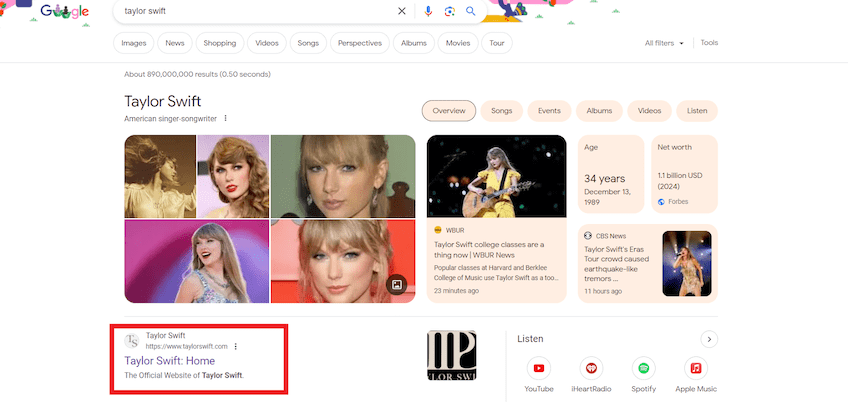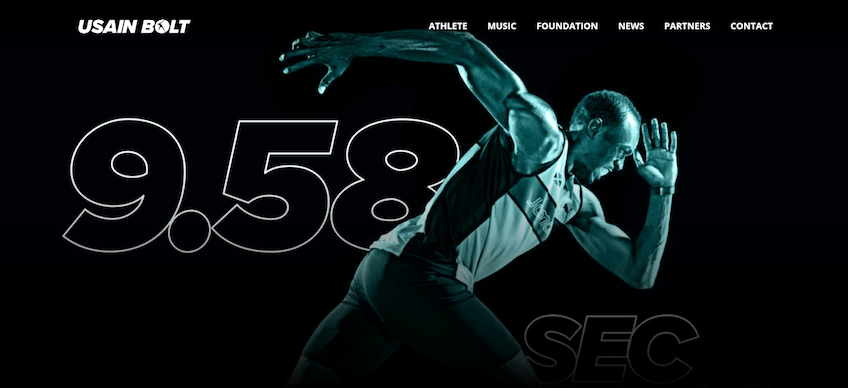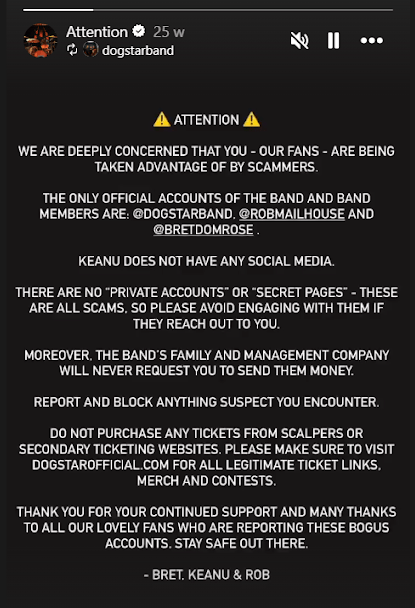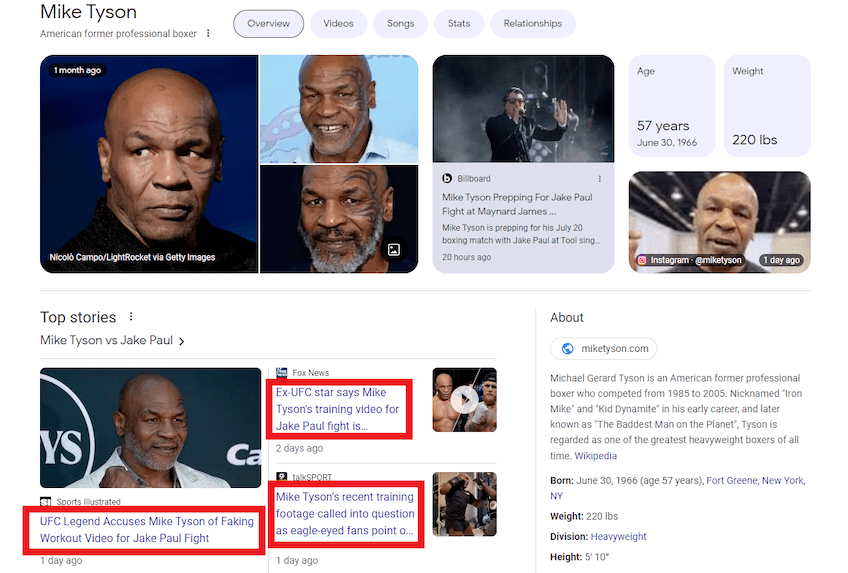As a celebrity or public figure, society holds a magnifying glass to everything you do.
With the world hanging on to your words and actions, it’s no surprise they’ll spin things to suit their world views, take quotes out of context, or paint you in a negative light every chance they get.
The best defense? Playing offense and building a stable reputation that’s challenging–if not impossible–to break apart. Whether you have time to manage your reputation yourself, have a team ready to do the work for you, or you want to offload it to professionals who do it everyday, this guide covers everything you need to know.
1. Hiring a Reputation Management Firm Is the Easiest
Celebrity reputation management requires constant monitoring, regular publishing on numerous channels, controlled interviews, masterful storytelling, a crisis response plan, and a proactive approach.
In other words, it’s grindy. It takes a lot more work than most people think.
Whether you have a team or not, partnering with a reputation management company is the easiest way to get everything you need. From one-off activities like removing personal information and negative news articles to ongoing social media management, they can handle everything on your behalf. Or work hand-in-hand with your team.
From building and optimizing your website to defining your brand, managing your social channels, removing negative content, and landing more positive coverage, they’re an excellent partner to have in your back pocket.
2. Buy the Domain for Your Name
Despite the wide variety of alternatives available, getting a .com domain is still the gold standard. Of course, acquiring one might leave a hole in your wallet, but it will give you much more control over your image.
The .com extension is universally recognized and boosts your brand’s authority and credibility. Meanwhile, a web address that includes your name is unique and easy to remember—and it also increases the chances of having your website occupy the top spots in search engine listings whenever people type in your name in the search bar.

Taylor Swift’s website, for example, usually occupies the top spot in organic search results above Google’s top stories section. This means that users are much more likely to enter her website—a place she has full control over—than to scroll below and read posts and pages created by other people.
Although .com domain extensions don’t always come cheap, you can still find pretty good deals. Make sure to research different domain brokers and see what works best for you.
We also recommend buying up variations of your name, too. That way, no one else can swoop them up and pretend to be you.
3. Leverage Your Website
Aside from being an excellent merchandise-selling tool, a website can do huge favors for your personal brand.
First of all, you can typically have full control over its design, which lets you present yourself in any way you want. This can be great for influencing how the public perceives you.

Usain Bolt’s website, for instance, doesn’t necessarily try to sell anything. Its homepage is clean and does little more than highlight the athlete’s world record above the digital fold. You can also see his latest Instagram posts after you scroll a bit further down the page—which is perfect for attracting new followers.
In terms of his image, however, the links to his foundation and news clippings are the main standouts.
By highlighting Bolt’s charity work and encouraging fans to contribute to a good cause, the site paints him in a positive light while also attracting more donations. At the same time, the news section helps gain better control over what kind of information circulates across the web—mitigating the chances of false rumors and other click-bait hit pieces.
If that ever happens, the website can help debunk these rumors by housing official statements and responses that may be too long for social posts. People won’t always stick around to read a 500-word post on their social feeds, but with websites, it can be a different story.
4. Expand Your Social Media Presence
The first step to managing your reputation is to have an official communication channel to connect with your fanbase—because emails and press releases simply won’t cut it.
If you happen to land in a PR crisis for any reason, social media channels serve as the first line of defense to address any issues and make a statement before things blow out of proportion.
Meanwhile, having verified social accounts also helps keep impostors and impersonators at bay. These people often set up fake celebrity accounts to scam fans, mostly for monetary gain. If you don’t identify these accounts and address this issue quickly enough, you’ll have to deal with the backlash.
Keanu Reeves, for example, does not have any social media accounts, and this can often land his fans in hot water (or even debt) for believing in scammers who appear credible.

To prevent this from happening to you and your fans, make sure to set up your own official social accounts—and get the blue checkmarks if necessary—even if you don’t plan on posting any regular content.
Creating an account is usually just a matter of coming up with a unique user handle and completing an ID verification process. If you ever need to make a post, users will know that you’re the one behind the account.
But how many accounts are you going to manage yourself? Between business and personal accounts, celebrities might have a few dozen different accounts associated with their presence.
Managing a ton of social media profiles is literally a full time job. There are thousands of open roles for social media managers making $60-$90k per year, just in the US.
5. Fill Search Results with Positive Stories
Websites with personal domain names are handy for placing yourself and the top of search results, but they won’t always have you fully covered—especially when things get heated.
Simply put, typing your name into google does not guarantee good results.

In Mike Tyson’s case, his website and social accounts show up further down in the organic search listings, leaving a lot of room for tabloid stories to stir the pot.
Journalists and news outlets understand that drama tends to generate clicks—so any juicy hit piece can spread like wildfire if it’s not addressed quickly enough.
The best course of action in this scenario is to roll out as many positive stories as you can (within reason), and the earlier you do so the better. By consistently populating your website and social channels with original content that puts you in a favorable position, you can divert attention and prevent any negative posts from picking up too much steam.
Keep in mind that you should also cross-link your social profiles and website. This lets Google know your social accounts and web pages are connected, which helps place all of your links at the top of the search results. It’s also useful for keeping your fanbase close to the chest and far away from unwarranted negativity.
This is one of the methods for reputation management where it definitely helps to hire a professional. SEO strategy and content production take time to learn and implement. When you hire an online reputation management company, their specialists can have a production-ready plan drawn up in a matter of hours.
6. Find Friendly Journalists
Having a few media outlets on your side can also make a big difference. Search for journalists within news outlets that have a clean reputation and aim to establish collaborative relationships with them.
If you’re an up-and-coming celebrity or a mid-tier influencer, consider targeting local outlets within your area first. Local journalists will likely be eager to write about you for community engagement, and if there’s the option to meet face-to-face, that can help build trust.
Lastly, remember to be selective about the information you share. Focus on details that put you in a positive light in front of everyone and cannot be misinterpreted or twisted in a defamatory way.
7. Leverage Reputation Monitoring Tools
Although they’re mostly popular among businesses, reputation monitoring tools can also be handy for managing personal brands. These tools help collect brand mentions and identify audience sentiment from all across the internet—be it social media networks, blogs, online forums, and so on.
In general, the point of using these tools is to gauge public opinion, spot negative press before it gains traction, and address public feedback. Additionally, reputation monitoring tools can also provide you with data on your audience that’ll help you develop your brand into something your fanbase feels more connected with as time goes on.
